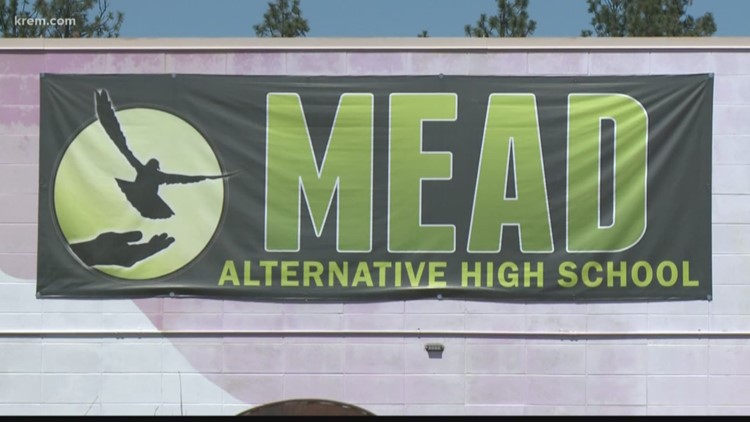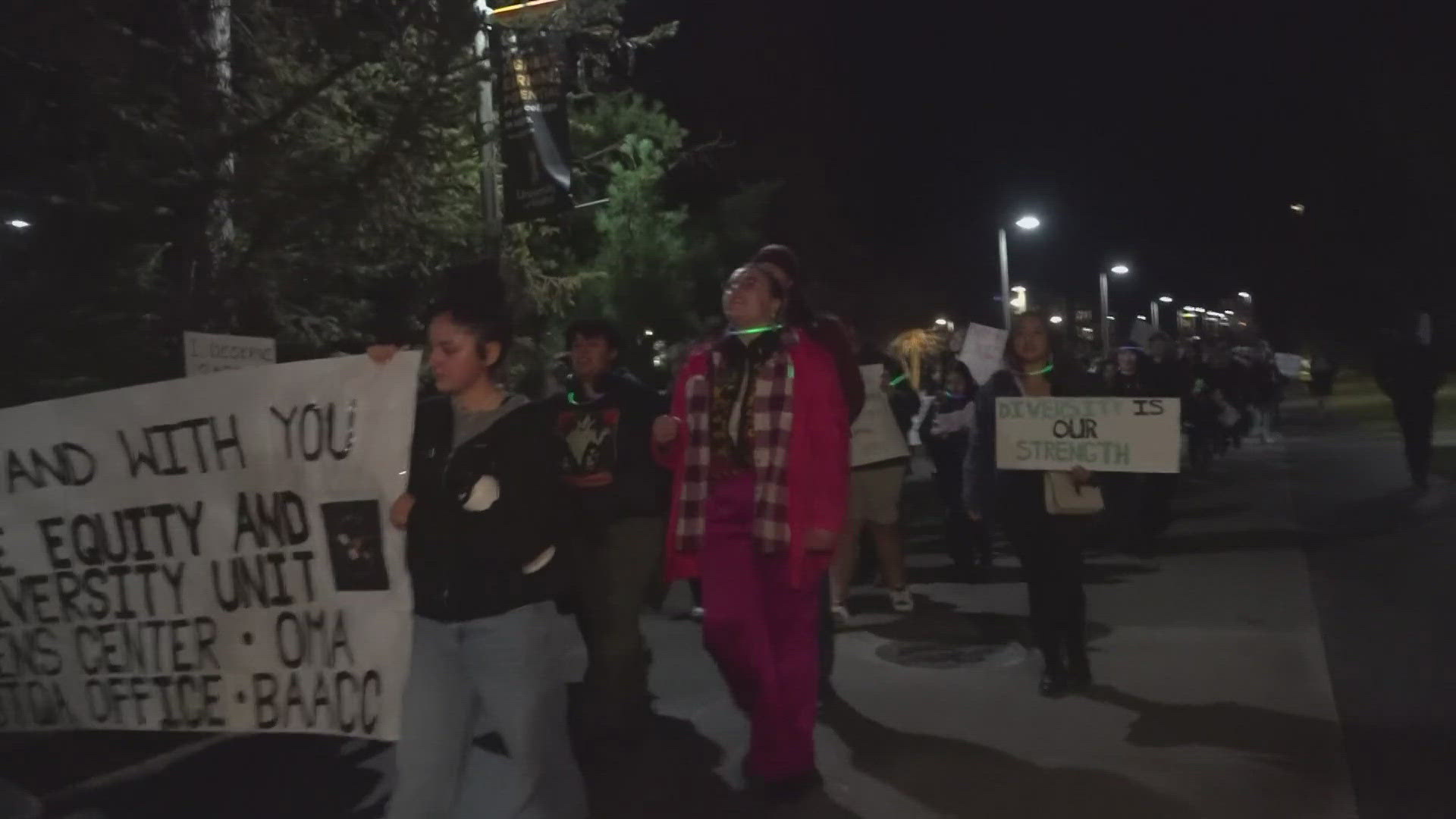MEAD, Wash. — A former student is upset with the Mead School District following the recent building of a new football stadium and other facility projects after their alternative high school was closed in 2019.
In 2019, the Mead School District shut down two alternative learning centers, M.E.A.D Alternative Program and Riverpoint Academy, due to cuts made following the fallout of the McCleary Decision. At the time, Mead cited the cap on local levies instituted by the state and upcoming statewide mandates that the district says are underfunded.
In February 2018, Mead voters passed a $114.5 million facilities improvement bond. According to the district, the money would go to building a new middle school, a new elementary school, a transportation co-op facility, maintenance facility, transforming the old Mead Middle School site into a 4,500-seat performing arts center, a new football stadium and other sports fields.
This left students like Ashley Henegar wondering why that money couldn’t go to reopening schools like M.E.A.D Alternative that had helped her and so many others.
“I originally went there just because regular high school was not working for me,” Henegar said. “I just thought it's time for a change, I’m falling behind I won't graduate at this rate. So, I went there and the overall appearance was amazing.”
M.E.A.D Alternative School offered a community based, non-traditional learning environment for students who cannot attend traditional high schools.
Henegar was a student there when the closure was announced in May 2019. The district at the time said the closure of the M.E.A.D Program and Riverpoint Academy would save $1.6 million.
“I was pretty upset because you know I finally they found a place for an education system that actually worked for me,” she said. “I finally like felt like okay I actually kind of belong here and I actually am able to work effectively and get everything done on it in a timely manner. And I just felt like a safe place.”
At the time, some options parents discussed include homeschool, attending the two other high schools in the district, or moving to another district with non-traditional education programs. Some students opted to drop-out.
When the closure was announced, Henegar knew dropping out wasn’t an option for her. She ended up going to OnTrack Academy, which is in the Spokane Public School District.
“They definitely helped me finish off strong, but I know a couple kids, kind of just fell through the cracks,” she said. “They were kind of just disappointed and really let down by the school system and the way that they handled it, and they didn't really listen to or hear our cries.”
When Henegar heard about the new football stadium, she was let down again.
“I'm super disappointed in how they've chosen to spend their money,” she said. “As much as I love sports, my brother played high school football, and I love going to the game, but on the other hand, alternative learning I think should be a priority just because some kids cannot function in that normal high school environment, sometimes very stressful, sometimes they fall behind and when kids fall behind in, sometimes schools don’t really care and again just let them slip through the cracks.”
According to Washington state law, bonds can only be used for building new school facilities. M.E.A.D Alternative was located in a strip mall on West Hastings Road near North Mill Road. The only way the school could reopen using funds from the 2018 bond was if they built a new school.
A levy could help with a reopening. Levies can pay for things like extracurricular activities and special education. A levy is a local property tax passed by voters.
KREM reached out to Mead Superintendent Shawn Woodward for comment on this story but have not heard back.
Henegar, along with another former M.E.A.D Alternative student created a petition for the district to build a new facility for the program. As of Monday, Aug. 31 it had 29 signatures.



